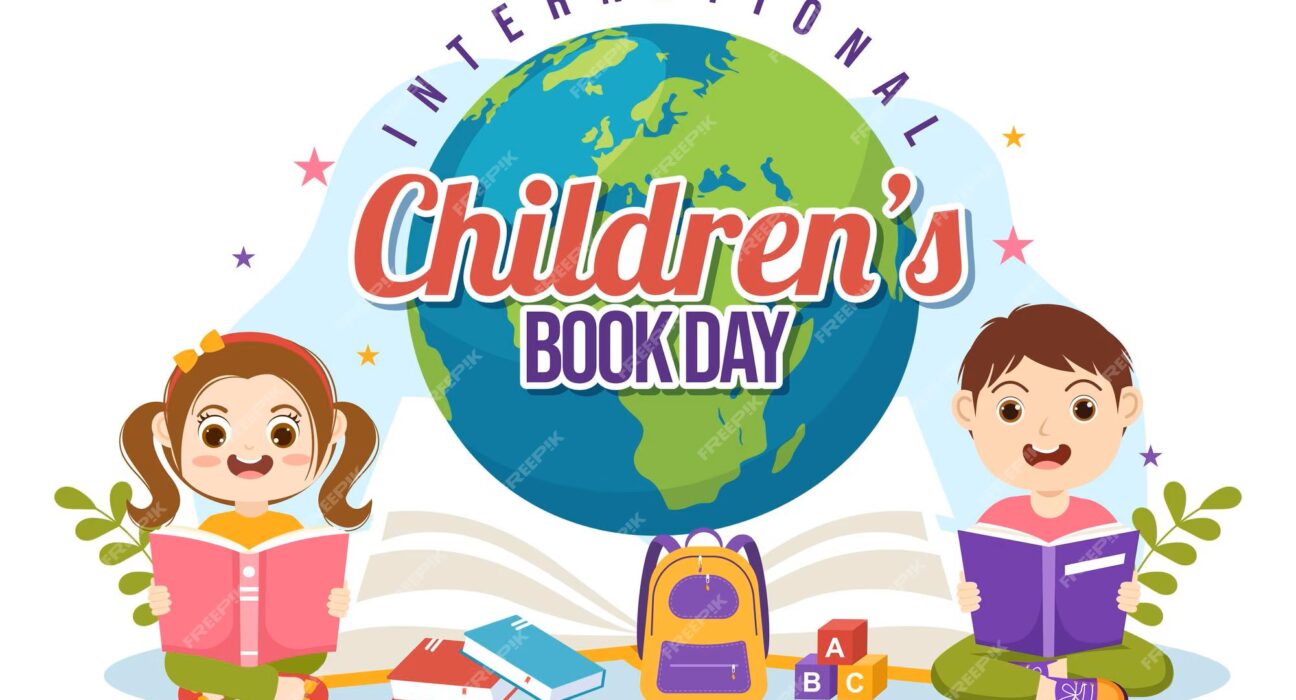Children’s Book Day is a special occasion to celebrate the importance of books in the lives of young readers and to honor the authors, illustrators, and publishers who create the stories that shape childhoods. Observed annually on April 2nd, this day serves as a reminder of the power of books to ignite imaginations, foster learning, and encourage lifelong love for reading.
The Origin of Children’s Book Day
Children’s Book Day has a rich history that dates back to the 1960s. It was first established by the International Board on Books for Young People (IBBY), an organization committed to promoting children’s literature across the world. The day is marked by a global celebration of books for children, with various events such as book fairs, storytelling sessions, author visits, and discussions around the value of reading.
One of the key figures behind the creation of Children’s Book Day is Hans Christian Andersen, the famous Danish author of fairy tales like The Little Mermaid, The Ugly Duckling, and The Emperor’s New Clothes. His birthday, April 2nd, was chosen as the official date to celebrate children’s books, making the day not only a celebration of reading but also an homage to one of the greatest storytellers in history.
The Importance of Children’s Books
Children’s books are more than just stories—they are essential tools for developing a child’s cognitive, emotional, and social skills. Here’s why books for young readers are so important:
-
Fostering Imagination: Children’s books introduce young minds to fantastical worlds, diverse characters, and magical adventures. These stories help spark creativity and imagination, allowing children to envision possibilities beyond their own immediate environment.
-
Building Literacy Skills: Early exposure to books is fundamental for literacy development. Reading to children and encouraging independent reading helps build vocabulary, comprehension skills, and an understanding of narrative structures. These skills are crucial for academic success later in life.
-
Teaching Moral Lessons: Many children’s books contain themes of kindness, honesty, empathy, and perseverance. Through relatable characters and situations, young readers learn important life lessons that guide their personal growth and interactions with others.
-
Providing Representation: In recent years, there has been a concerted effort to ensure that children’s books reflect a wide range of cultures, identities, and experiences. By diversifying children’s literature, young readers can see themselves represented on the page, helping them develop a sense of belonging and understanding of others.
-
Encouraging Emotional Growth: Books help children navigate complex emotions. Through stories, children can explore fear, joy, sadness, and anger in a safe and controlled environment, which allows them to better understand and cope with their own feelings.
Celebrating Children’s Book Day
Children’s Book Day is celebrated in a variety of ways around the world. Some of the most common activities include:
-
Storytime Events: Libraries, schools, and bookstores often host special storytime sessions where authors or librarians read aloud from popular children’s books. These events help foster a love of reading and encourage children to engage with stories in a social setting.
-
Author Visits: Many authors take part in Children’s Book Day by visiting schools or libraries to read their books and talk about the writing process. These visits give children a chance to interact with the creators behind their favorite stories and gain insights into the world of literature.
-
Book Donations and Book Drives: Some communities organize book donation drives to provide books to children who might not have access to them otherwise. This effort ensures that every child, regardless of their background, has the opportunity to experience the joy of reading.
-
Themed Reading Lists and Recommendations: Publishers, educators, and parents often create themed reading lists to introduce children to a variety of genres, cultures, and topics. These recommendations aim to expose young readers to new ideas and perspectives while helping them find books that resonate with their interests.
The Future of Children’s Books
The world of children’s literature is constantly evolving. As technology advances, digital books and interactive storytelling formats have entered the scene. Yet, traditional print books remain a vital part of the experience, offering tangible connections between children and the stories they read.
Publishers and authors are also increasingly addressing important social and environmental issues in their books, promoting messages of sustainability, equality, and social justice. These topics are not only relevant but also essential in helping young readers become informed, compassionate, and responsible citizens.
As we celebrate Children’s Book Day, it’s important to remember that the stories we read to children today have the power to shape the leaders, thinkers, and dreamers of tomorrow.
How You Can Celebrate
-
Read Together: Spend time reading your favorite children’s book with a child, or discover a new one together. Share the joy of reading and immerse yourself in the wonder of a good story.
-
Support Your Local Bookstore: Buy a book from a local bookstore or library to support children’s literature and the industry that creates it.
-
Introduce a New Book to a Child: If you know a child who is just starting to explore the world of books, introduce them to a new story. The right book at the right time can spark a lifelong love of reading.
-
Donate Books: Consider donating gently used or new children’s books to a local school, library, or charity to ensure that more children have access to books.
-
Share Your Favorite Books: On social media, share your favorite childhood books with the hashtag #ChildrensBookDay, and encourage others to join in the celebration.
Conclusion
Children’s Book Day is more than just a celebration of literature—it’s a reminder of the incredible impact that stories can have on young minds. By fostering a love of reading, nurturing creativity, and promoting learning, children’s books play an essential role in shaping the future of our world. As we celebrate this day, let’s continue to encourage and empower the next generation of readers, thinkers, and storytellers. Happy Children’s Book Day!












